“Is my order here yet?” Here’s what we said about clothes shopping online
Written by
Kinga EdwardsPublished on
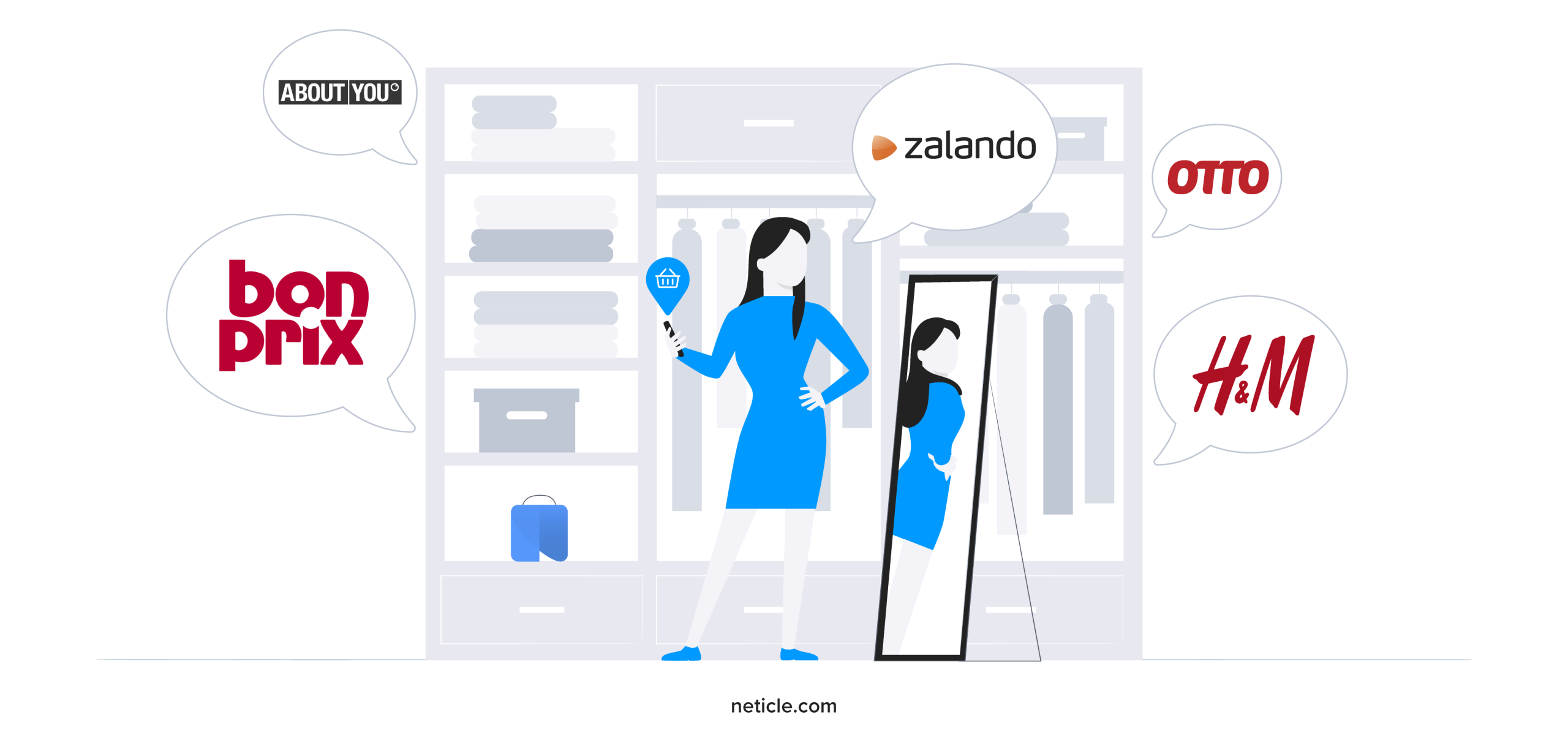
From previous research, we already know that ecommerce in general has been one of the best performing areas during the coronavirus pandemic. But was that so in the world of clothing and fashion, too? To investigate, Neticle, a media and text analysis company collected the online mentions of five large online clothing stores from the 1st of March.
The online stores in question are Zalando, H&M, Bonprix, OTTO and About You. All of these are available both in Germany and Austria, so mentions were collected from both the German and the Austrian web.

OTTO had the highest number of mentions, but Zalando had some major peaks on Facebook
In Germany, Zalando had two major mention peaks: the first one on International Women’s Day, when they told Facebook followers to tag the strongest woman they know, which resulted in over 5000 comments on their post. The second one was an Easter giveaway on the 12th of April, also on Facebook.
OTTO had the highest number of mentions out of the five, however, the daily number of their mentions seriously dropped throughout the second half of April and all of May.
Then in June it rose to a higher level than it was in March. H&M followed a completely different path: their mention peaks mostly happened in April and May.
Bonprix and About You had lower mention numbers than the others, but the daily amounts remained steady throughout the examined period.
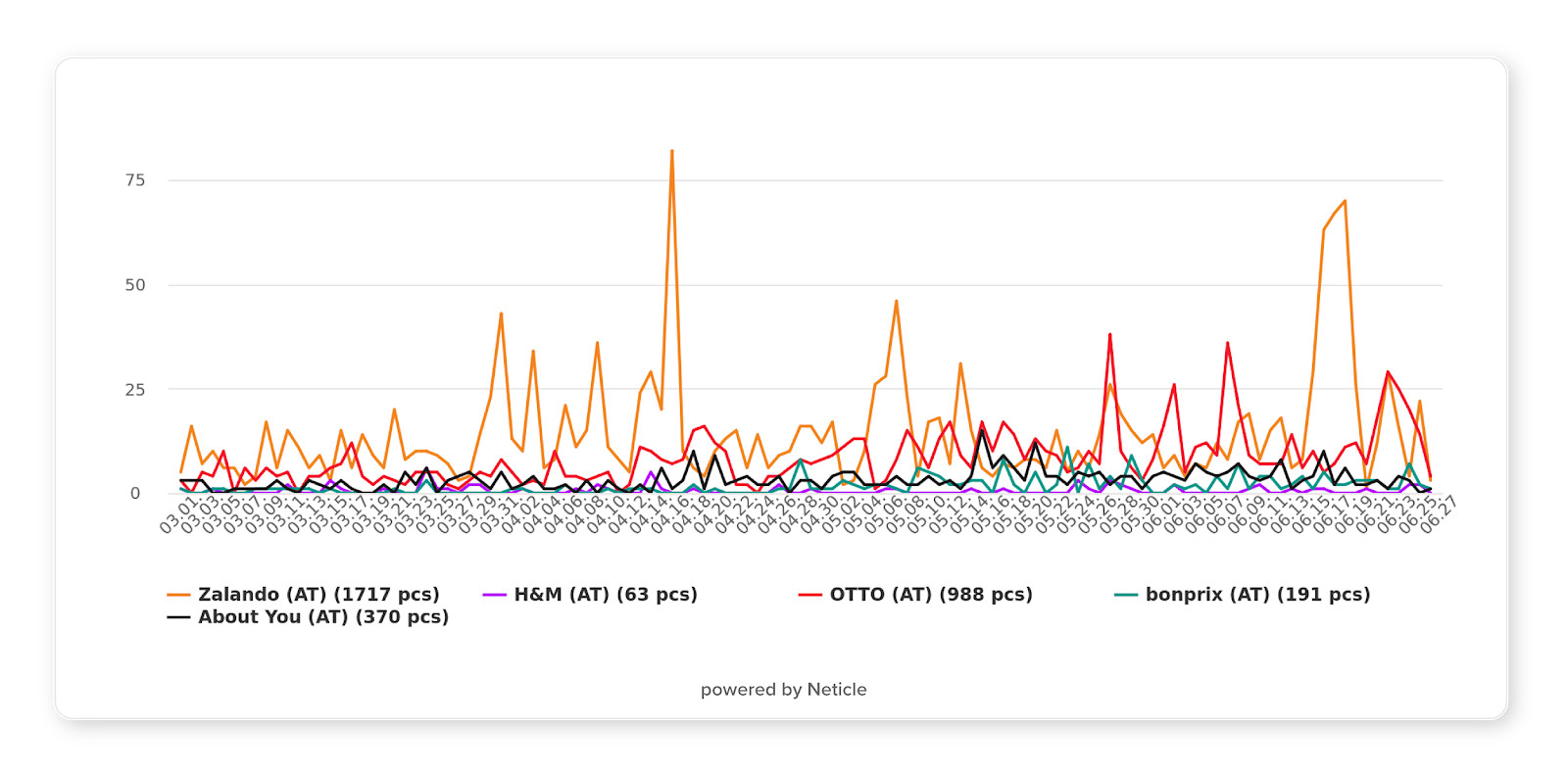
Zalando was by far the most popular in Austria
In Austria, all brands had much less mentions than in Germany, but Zalando and OTTO similarly took the lead.
The biggest difference is for H&M.com: the store was hardly mentioned in Austria, while in Germany, their Facebook page was really active and has lots of comments.
Pinterest was one of the most important platforms

The major stores were mentioned in very different corners of the web
The discussion about these clothing stores took place over different platforms: over 73% of OTTO’s mentions in Germany – and 65% in Austria – happened on Pinterest. Bonprix (40%) and About You (28%) were also heavily featured there.
For Zalando, Facebook was the most important in Germany, but not important at all in Austria. Articles and forum threads featured the brand there instead, although over 4000 articles also mentioned the site in Germany.
Buyers were happy with the quality, but not with the speed
Among the key attributes of products and services, for both countries, good manners are at the top, with quite a few negative mentions: mostly about the lack of good customer service.
Free products and services had an overwhelmingly positive response of course, but posts and comments about the price of products collected a bit more negativity.
As we are talking about online shops, it is not surprising that speed and time of delivery also appear on the list: this is the area where most of the negative feedback was made.
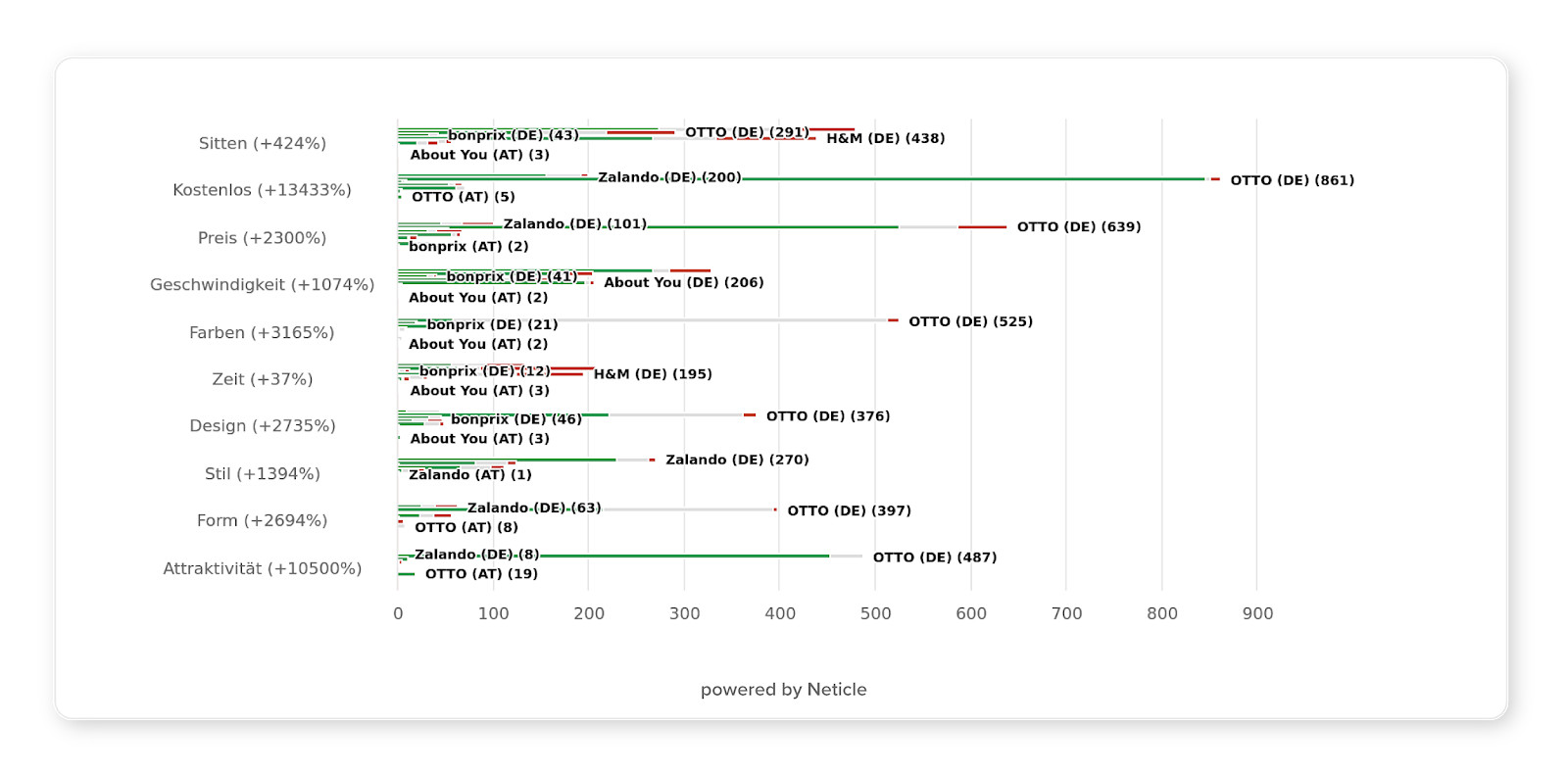
A lot of important attributes were about the look and quality of the clothes themselves, and it is perhaps reassuring that overall, the online feedback in these areas was great.
Instagram posts kept users engaged
The posts that drove the most engagement (based on interaction numbers, ie. likes, comments and shares aggregated) were almost all from Instagram, which is interesting as the platform was not heavily featured based on mention numbers.
In Austria, the top three posts (all by Riccardo Simonetti) featured the Equality collection launched in Pride Month (June) by About You.
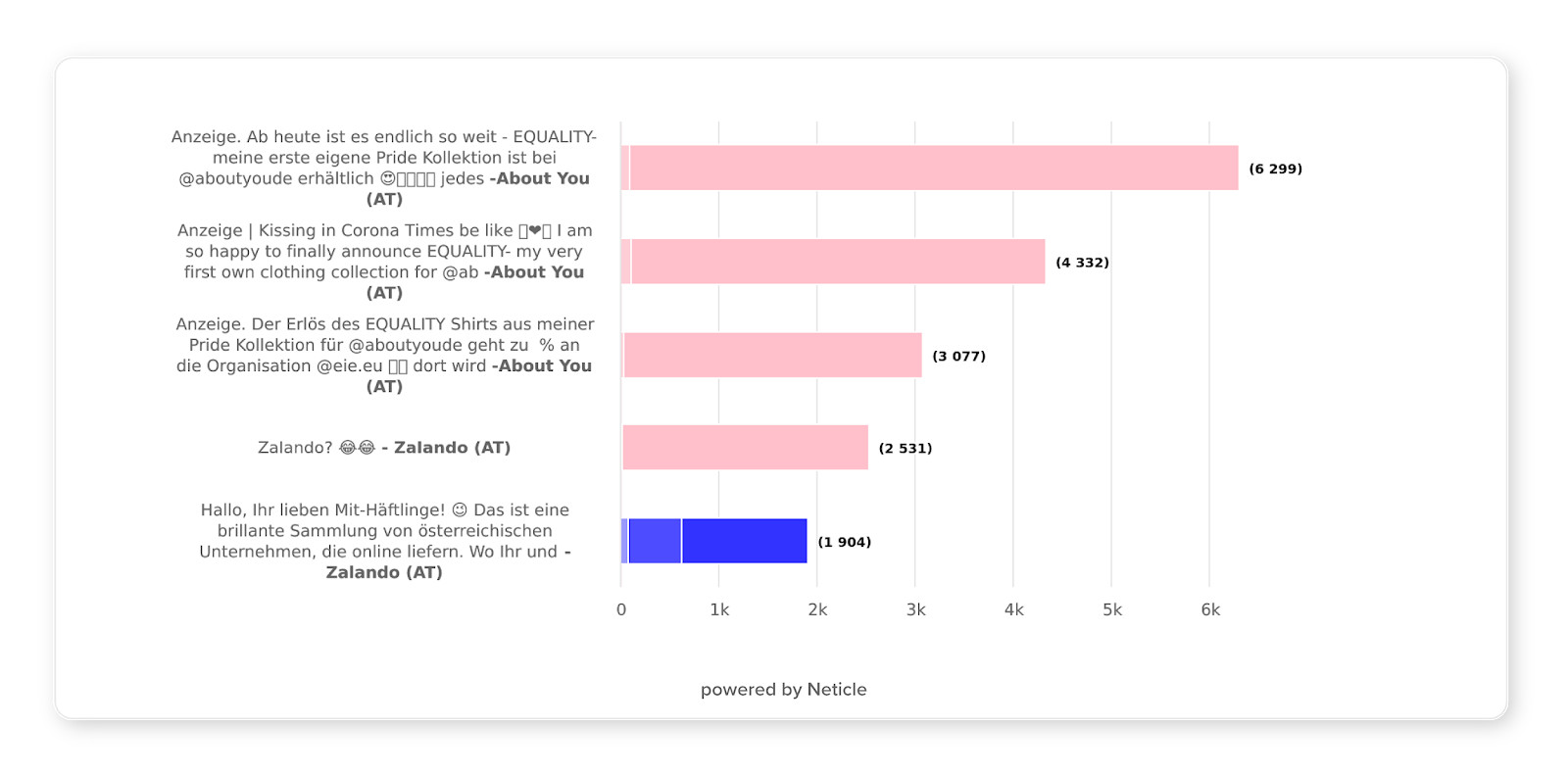
One of Riccardo’s posts – the #1 in Austria – was also popular in Germany, but it only took fifth place there.
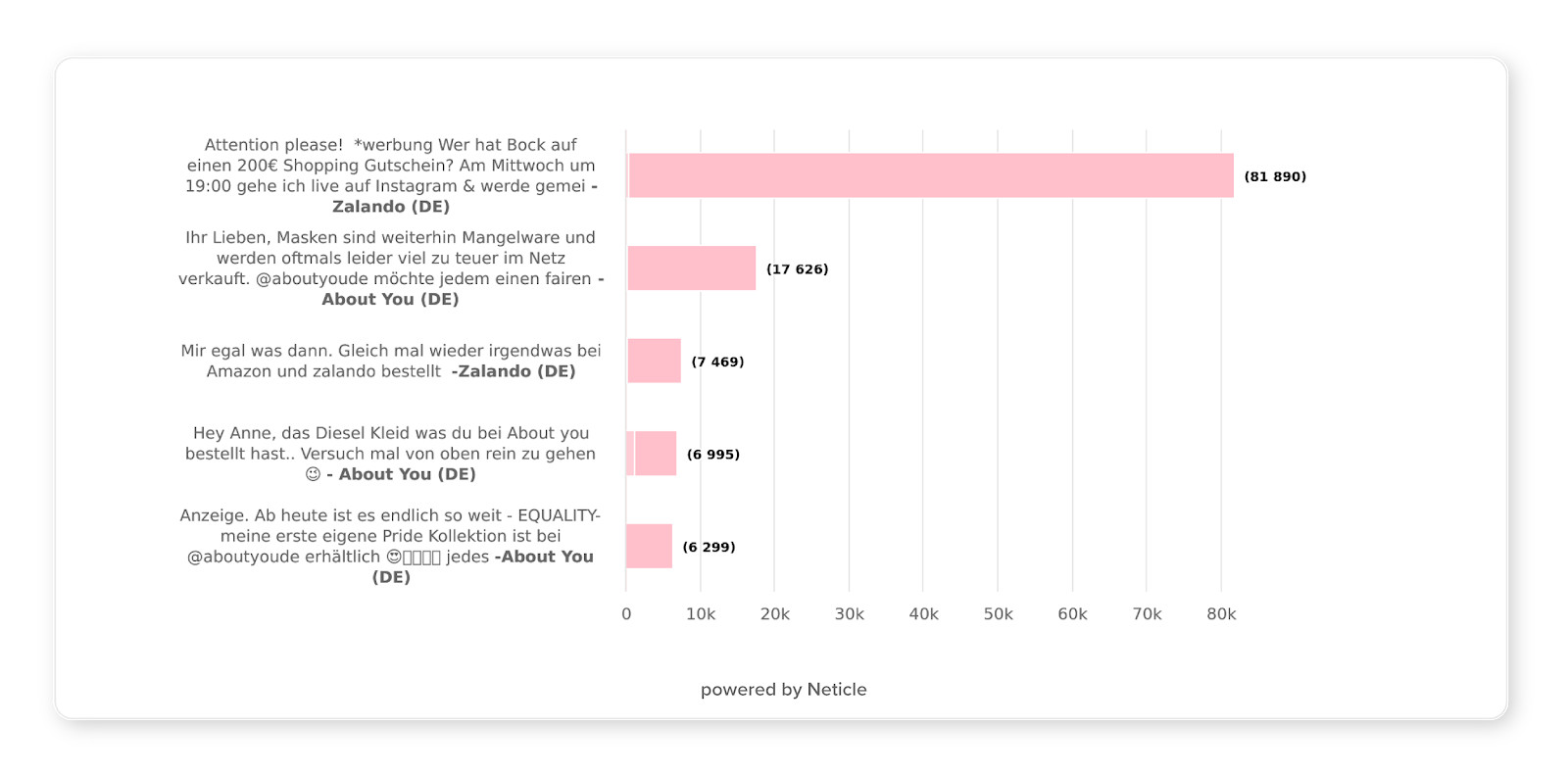
However, About You did really well on Instagram: three of the most engaging posts in Germany also featured them, for example this very positive post about masks being available in their store at cost price.
Overall, all five online clothing stores were popular on the web in both countries, and apart from a few smaller ups and downs, their online presence has been a success throughout the pandemic.
Neticle’s intelligent media- and text analyser tool searches the internet (articles, forums, social media posts, comments) for any brand’s or product’s public mentions, then analyses the collected mentions with the help of its algorithm, nearly with human precision. The company was founded in 2012 but is now present on the market of 12 countries. Besides the media analyser, Neticle also offers a survey tool and two APIs to clients.


